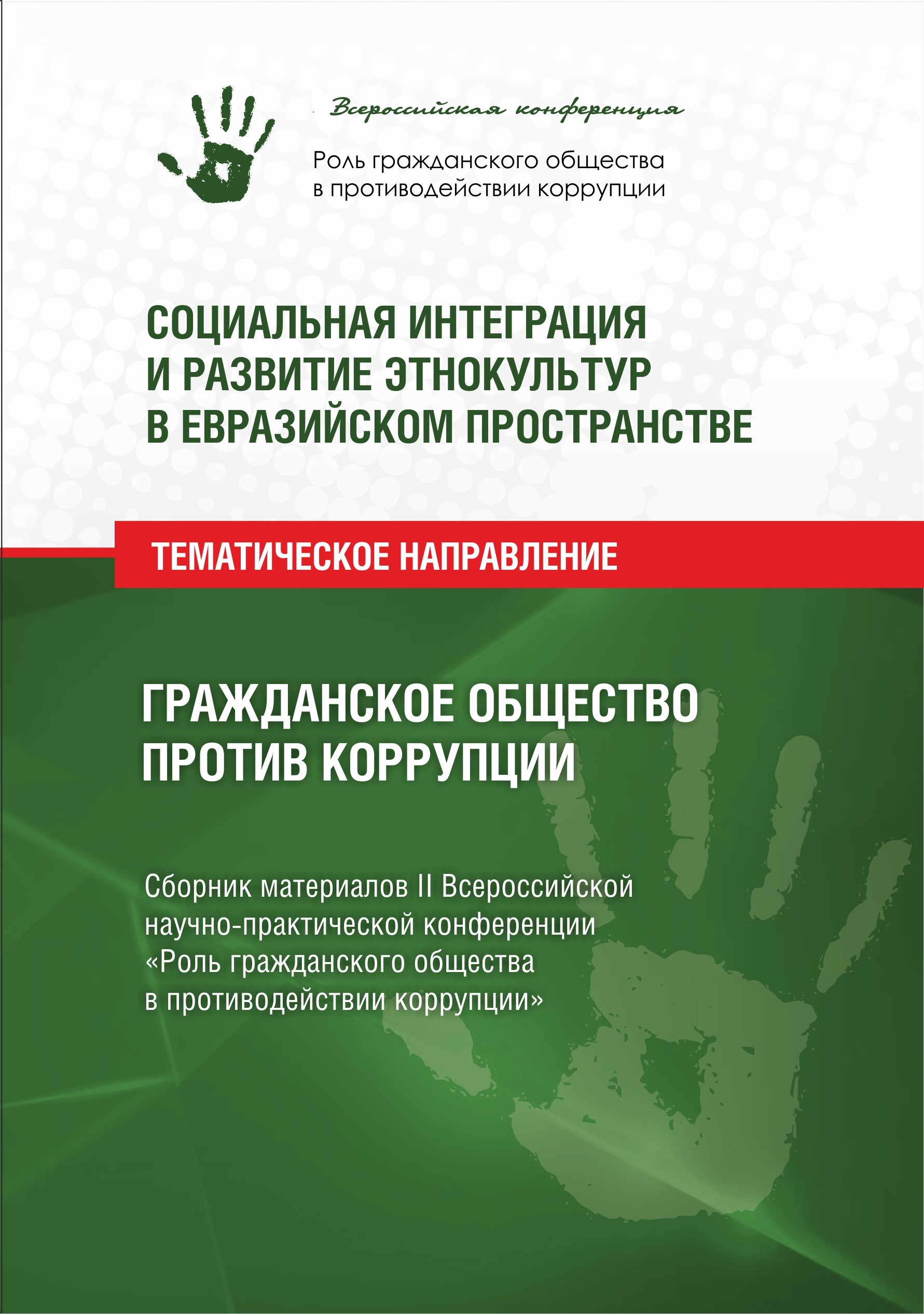СОЦИОЛОГИЧЕСКИЙ АНАЛИЗ КОРРУПЦИОННЫХ РИСКОВ: СУБЪЕКТЫ ВОСПРОИЗВОДСТВА И СУБЪЕКТЫ ПРОТИВОДЕЙСТВИЯ
Основное содержание статьи
Аннотация
В статье обосновываются научные и практические возможности подхода к пониманию сущности коррупции и противодействия коррупционному поведению на основе социологической концептуализации риска. Рост научного и практического интереса к проблемам адаптации и управления рисками автор связывает с трансформационными процессами. Коррупция по своей природе является социальной дисфункцией, высшей формой проявления криминализации общественных отношений, выступая таким образом сильнейшим социальным риском, угрозой стратегического характера. Исходя из признаков идентификации риска, автор представляет коррупцию как субъект-субъектные отношения, целью которых является снижение неопределенности, вклад в позитивность результата посредством определенного ресурса. Возможности такого подхода иллюстрируются данными двух социологических исследований и позволяют обосновать продуктивность построения ряда целевых антикоррупционных программ для конкретных социальных слоев при непосредственном общественном участии гражданского общества.
Скачивания
Данные скачивания пока недоступны.
Детали статьи
Как цитировать
[1]
Мозговая, А.В. 2020. СОЦИОЛОГИЧЕСКИЙ АНАЛИЗ КОРРУПЦИОННЫХ РИСКОВ: СУБЪЕКТЫ ВОСПРОИЗВОДСТВА И СУБЪЕКТЫ ПРОТИВОДЕЙСТВИЯ. Социальная интеграция и развитие этнокультур в евразийском пространстве. 1, 9 (май 2020), 165-172.
Раздел
ПРОТИВОДЕЙСТВИЕ КОРРУПЦИИ В РЕГИОНАХ РОССИИ: МЕХАНИЗМЫ, ТЕНДЕНЦИИ, ПЕРСПЕКТИВЫ

Это произведение доступно по лицензии Creative Commons «Attribution» («Атрибуция») 4.0 Всемирная.
Литература
Закс В. А. Социокультурные предпосылки коррупции // Государство и право. 2001. № 4. С. 52–55.
Коррупция и борьба с ней: роль гражданского общества / Под ред. М. Б. Горного. СПб.: Норма, 2000.
Левада Ю. Человек в корруптивном пространстве. Размышления на материале и на полях исследования // Мониторинг общественного мнения. 2000. № 5. Сентябрь – октябрь. С. 7–14.
Мозговая А. В. Российские предприятия в условиях рынка // Российское предпринимательство: стратегия, власть, менеджмент. М.: Изд-во Института социологии РАН, 2000. С. 110–126.
Радаев В. В. Российский бизнес: структура трансакционных издержек // Общественные науки и современность. 1999. № 6. С. 5–19.
Сатаров Г. А. Тепло душевных отношений: кое-что о коррупции // Общественные науки и современность. 2002. № 6. С. 18–27.
Коррупция и борьба с ней: роль гражданского общества / Под ред. М. Б. Горного. СПб.: Норма, 2000.
Левада Ю. Человек в корруптивном пространстве. Размышления на материале и на полях исследования // Мониторинг общественного мнения. 2000. № 5. Сентябрь – октябрь. С. 7–14.
Мозговая А. В. Российские предприятия в условиях рынка // Российское предпринимательство: стратегия, власть, менеджмент. М.: Изд-во Института социологии РАН, 2000. С. 110–126.
Радаев В. В. Российский бизнес: структура трансакционных издержек // Общественные науки и современность. 1999. № 6. С. 5–19.
Сатаров Г. А. Тепло душевных отношений: кое-что о коррупции // Общественные науки и современность. 2002. № 6. С. 18–27.

